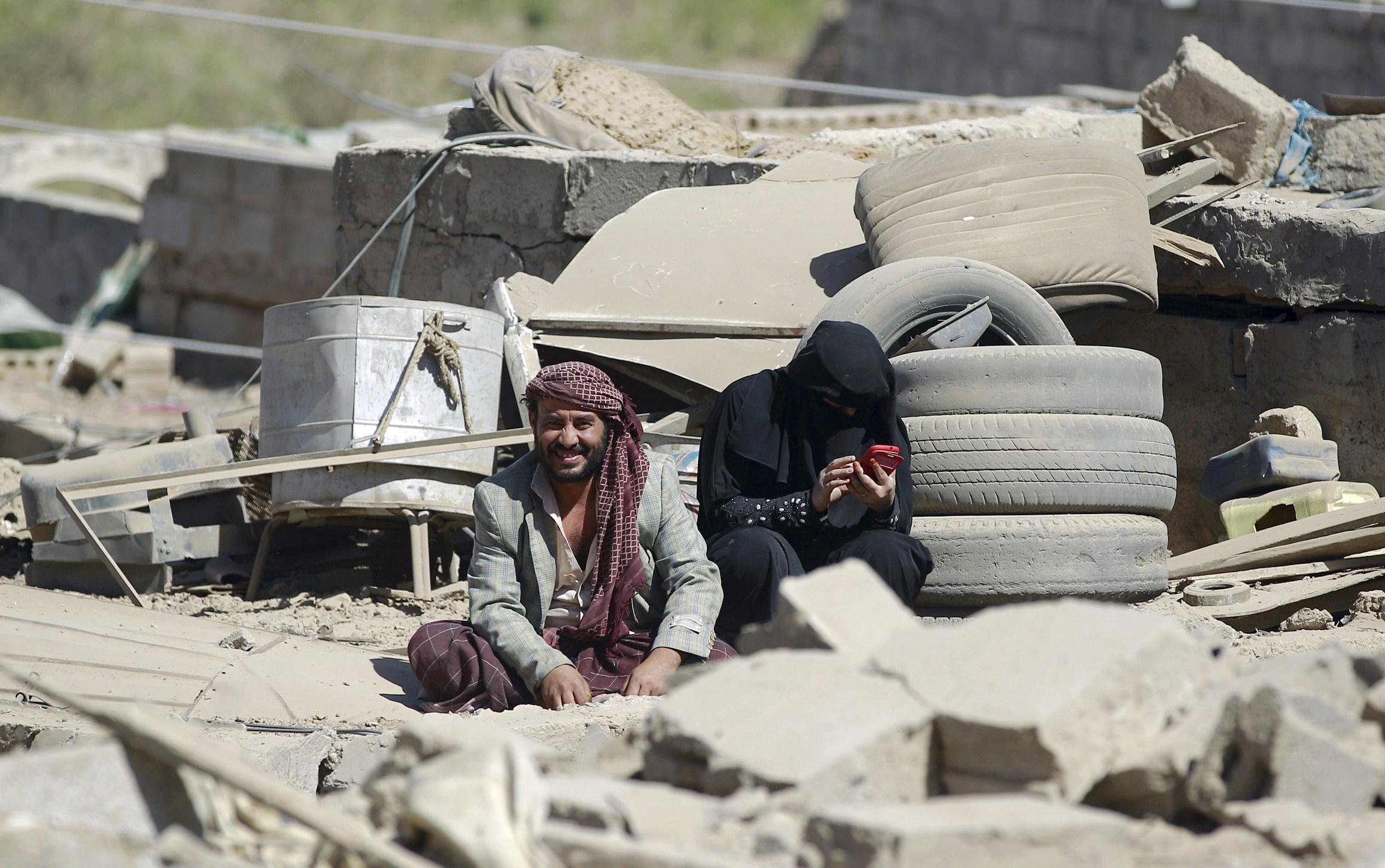The Obama administration is defending itself against criticism over reports that the Saudi-led coalition bombing Yemen is using American-supplied cluster munitions. Yesterday Human Rights Watch published photos showing munitions on the ground in Yemen that appear to be manufactured by the American defense manufacturer Textron Systems Corp. and were supplied to both Saudi Arabia and the United Arab Emirates.
Cluster bombs, which disperse tiny bomblets over a wide area and can cause high numbers of civilian casualties, are banned by 116 countries under a U.N. treaty, but not the United States or Saudi Arabia. In 2009, President Obama signed a law severely restricting the kind of cluster bombs that the U.S. can export, requiring that safeguards be put in place to prevent unexploded ordinance from being left on the ground and that steps be taken to ensure that they are not used in civilian areas by those we sell them to. However, HRW’s analysis claims the weapons have been used near civilian villages.
The cluster bombs story is just one aspect of America’s tortured response to the Saudi-led bombing campaign, which began in late March. Publicly, the U.S. has been backing the campaign against the Houthi rebels who have taken over the country’s capital. U.S. ships have been in the region to ensure that Iran doesn’t transport weapons to the Houthis; American intelligence analysts have reportedly been helping the Saudis vet bombing targets; and of course Saudi Arabia’s military is equipped with billions of dollars in American-made weaponry, including the fighter jets and helicopters that have been carrying out the raids.
But in article after article, U.S. officials have anonymously expressed their ambivalence about the war. There are fears that the civilian casualties and overall instability caused by the bombings will benefit al-Qaida, and that the weapons Saudi Arabia is supplying to anti-Houthi forces will, as the AP puts it, “end up with individuals and groups that have questionable motives or affiliations.”
There are reports today of an upcoming, temporary, humanitarian ceasefire, but all indications are that the conflict is deepening. Over the weekend a 20-troop reconnaissance team landed in Aden, the first use of ground forces in the conflict. Saudi Arabia denies that a major ground offensive is looming, but de-escalation seems unlikely now.
This is far from the first time the U.S. has been gradually drawn into a complicated foreign conflict without a foreseeable exit strategy. What’s unusual about Yemen is that the administration is barely trying to convince the public that supporting the campaign is worthwhile.
Looking at the Obama administration’s dispiriting lack of enthusiasm for its own Yemen policy, it’s hard to avoid two conclusions: that the administration wants to avoid any major public criticism of Saudi Arabia at a time when the Saudis are tentatively backing the proposed nuclear deal with Iran, and that even if they wanted to stop the Saudi campaign against the Houshis, they don’t have any better ideas.
